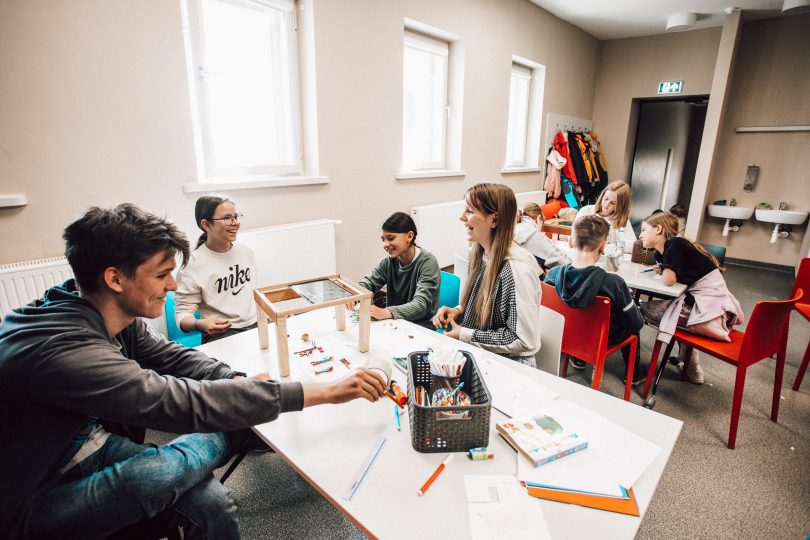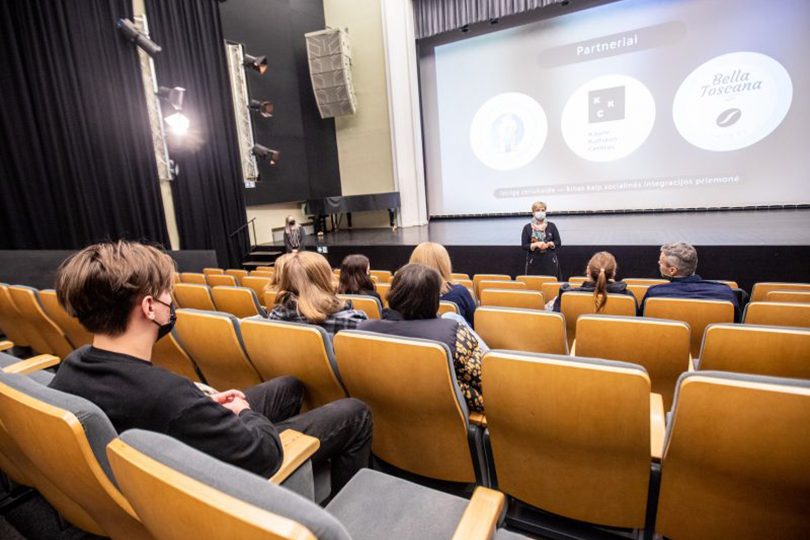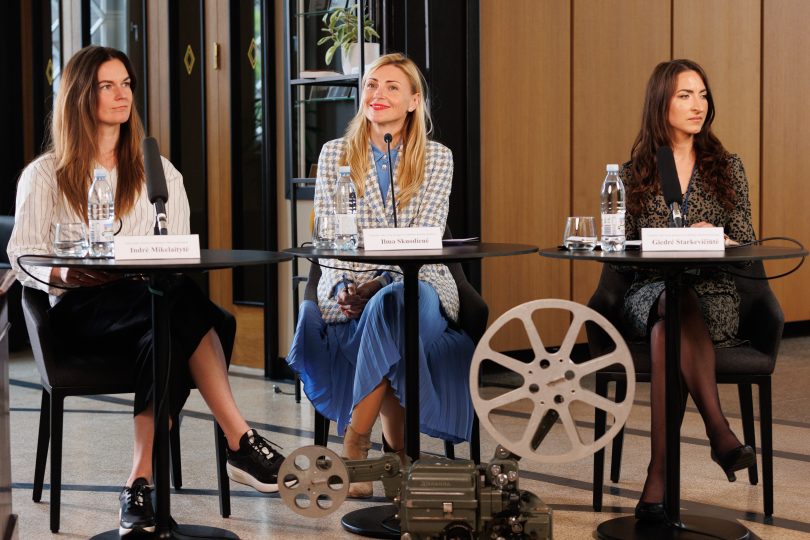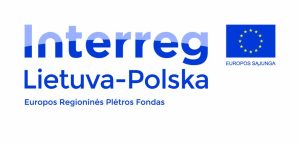Trapped in Celluloid - Cinema as a Tool for Social Inclusion

Kaunas Cinema Centre Romuva, together with partners Ełk Cultural Center (Poland), is implementing the project "Trapped in Celluloid - Cinema as a Tool for Social Inclusion" from 2022.
Start of the project – 2020 July 1, end – 2022 December 31. Total budget of the project: EUR 207.750,84, EU contribution: EUR 176.588,20. The project is partly financed by the European Regional Development Fund Interreg V-A Lithuania-Poland Cross-Border Cooperation Programme.
The project covers film therapy workshops for people working with vulnerable groups, especially children, youth and the elderly (e.g., for pedagogues, social workers, psychologists, etc.) from Lithuania and Poland. The group was taught by film therapy experts who explained how to design film therapy sessions, select films, prepare participants and lead a discussion, etc. The partners of the project in Lithuania – specialists of the State Child Rights Protection and Adoption Service – shared their experience at the workshop in Poland.
The project included a series of ten free events entitled "Cinema as Therapy", organised to screen and discuss films with professional psychologists, psychotherapists and social workers. The program aimed to encourage people to reflect on their emotional and psychological state with the help of films, to introduce them to various film genres and to provide an opportunity to have a conversation with a specialist about the challenges they face, free of charge. The program featured films appreciated by the audience and critics on a wide range of psychological issues and their consequences, inviting people to talk openly about suicide, exclusion, depression, loneliness, illness, family trauma, resocialisation, addiction and other topics.

In the final phase of the project, cultural-educational exchanges for youth and the elderly people were organised in Kaunas and Ełk. They gave an opportunity for the groups of participants to better understand the art of cinema, socialize and express their creative potential. Participants learn how to create animation themselves and are encouraged to have meaningful discussions about the films they have seen, to get to know both cities and each other.
At the end of the project, a manual on film therapy will be published. A publication on film therapy, offering an introduction to the subject, providing information relevant to those working with other people, presenting films offered to viewers in the film therapy sessions, including expert opinions and audience feedback. It will serve as a manual for people who would like to use film therapy in their work.
A guide to film therapy can be found here.

The potential and importance of the continuity of the project is unquestionable and it is already taking on new forms: the project partners – the State Child Rights Protection and Adoption Service, which aims to teach specialists working with children in various regions to apply the basics of cinema therapy, have taken up to spread the word about the benefits of this method.

